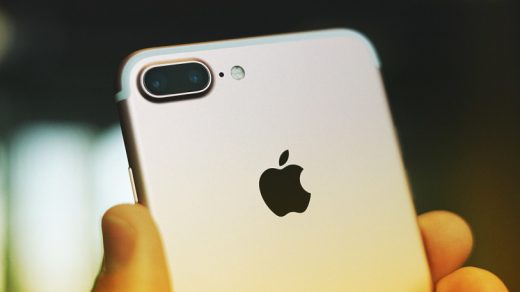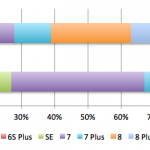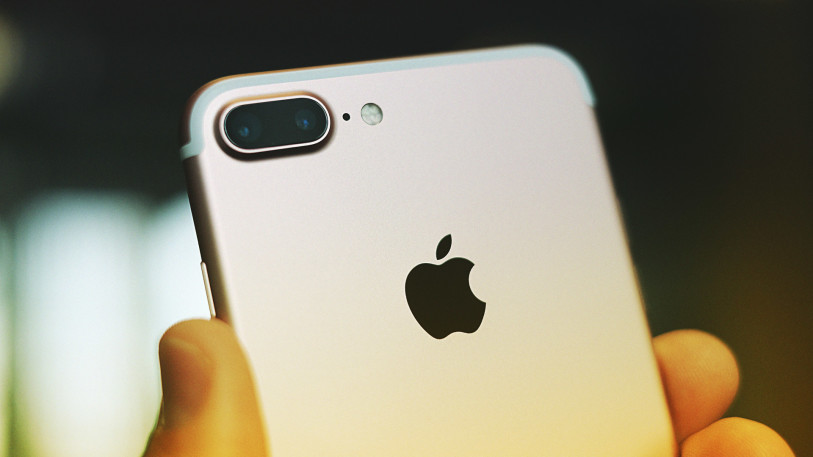Would You Shell Out $1,200 For Your Next iPhone? Soon You Might Have To
Would you pay an extra $300 or $400 for your next iPhone?
That’s roughly how much a border tax proposal being considered in the House of Representatives could inflate the sticker price. The plan, which has already earned some lukewarm support from President Trump, would abolish the current 35% corporate income tax and instead slap a 20% tax on American companies’ imports but exempt their exports.
By some estimates, it could generate more than $1 trillion in revenue over a decade. And supporters like House Speaker Paul Ryan assert that a stronger dollar—which would result from stemming the flow of dollars going overseas and in turn stimulating demand—would even out the impact of any price hike for consumers. In this line of thinking, adding tax barriers to importing products like the iPhone might force Apple to start making phones here in the U.S., as Trump often demanded on the campaign trail. Apple’s principal manufacturer, Foxconn, recently said that it’s exploring building a factory here and is already in talks with state officials in Pennsylvania.
How Consumers And Businesses Stand To Lose
But the higher labor costs of assembling components and building smartphones in the U.S., not to mention the disruption of a sprawling and long-established supply chain in Asia, would still very likely cause some sticker shock as the prices of iPhones, Kindles, and other popular gadgets all but inevitably climb.
On Tuesday, Apple CFO Luca Maestri warned as much. It would be “very hard for us to imagine that a border tax would be good for the U.S. economy, because it would burden the consumer and the dollar would appreciate versus where it is today, which is already too strong,” he told an audience of investors at the Goldman Sachs Technology and Internet Conference in San Francisco on Tuesday. “It doesn’t yield a positive outcome.”
VIDEO: HOW A BORDER TAX COULD INCREASE THE PRICE OF COMMON PRODUCTS
Especially not for consumers who are used to low prices at Walmart and Target, where big price increases would likely extend far beyond just mobile devices to include lots of everyday products made overseas, from clothes to toys to toothbrushes. When Trump met with the CEOs of big retailers on Wednesday, many of them expressed their opposition to the proposal.
“If enacted, the House proposal would have profound implications for our guests and business, and at Target, we believe that anything that raises prices for families is not a good idea for America,” a company executive told the Wall Street Journal. Companies aren’t just looking to protect consumers’ wallets, of course, they’re also trying to defend their bottom lines. As Bloomberg noted, when J.C. Penney tried cutting back on discounts, customers fled and the company’s revenue tumbled 24% in one year.
So What About Inflation?
But maybe it’s worth biting the bullet for the sake of the economy? Probably not. Despite reassurances from the proposal’s backers, inflation would hardly be tamed by a slightly stronger dollar. Our currency is already quite strong, and it would have to really surge in value to counter the impact of rising prices. Even the conservative-leaning Tax Foundation, which supports the proposal, estimates that it might take some time for the expected adjustment in the exchange rate to counter inflation.
And inflation, after all, is now the main threat lurking in the background, threatening to overwhelm the economy in the next few years under our protectionist president. Already, U.S. retail sales rose more than expected in January, and the consumer price index, a key measure of inflation, saw its largest increase in four years, according to government figures.
Despite all this, the word “inflation” rarely if ever passes between the lips of lawmakers and business leaders on cable news. That’s likely because it’s been almost 40 years since it made Americans’ lives miserable during the oil crisis of the late 1970s. By now, we’re all so used to ultra-cheap gadgets and T-shirts that we’re unprepared for its comeback. We pay about the same amount for clothing now as we did back in the early 1990s, and it’s actually cheaper to buy a shirt here than it is in Haiti or Romania, according to the most recent World Bank statistics, from 2011.
Inflation also seems like a foreign concept to President Trump, who mentioned the word only three times in his best-known book The Art of the Deal, despite its being published just a few years after the U.S. economy had emerged from that inflation-plagued era. During his campaign, he fulminated about taxing imports and tearing up trade deals like NAFTA, while hardly giving a thought to the almost-certain likelihood of inflation. And for all his political instincts, Trump seems to not to grasp that any significant increase in prices will inflict pain on consumers and create widespread anger. After all, his hero (and his compatriots’), Ronald Reagan, rode to victory on the backs of voters outraged over Jimmy Carter’s failure to turn the tide of inflation back in 1980.
But who can be surprised? Trump has never really ventured into retail, where you have to worry about attracting fickle shoppers with bargain prices. Maybe once upon a time, when he was selling two-bedroom homes to middle-class couples in Queens in the 1970s, he cared about affordability. But after decades of expanding his empire–first across the river to fancy high-rises in Manhattan and then around the world, from golf clubs in Scotland to hotels in Dubai–all that glitters for him these days is gold. As a luxury real-estate developer with occasional sidetracks into “premium” products like Trump Vodka and Trump Steaks, he’s had the opposite instinct: Charge high prices for those aspiring to glamorous lifestyles, at any cost.
Trump has spent a riotous four weeks in office after sweeping into the White House on political headwinds few others could feel blowing. But the border tax proposal and his plans to torch trade deals may prove the new president’s most damaging miscalculations yet. Failing to consider the impact of such measures on consumers could make him even more unpopular than he is already–and that’s one thing that even a mogul like Trump may not be able to afford.
Fast Company , Read Full Story
(16)














